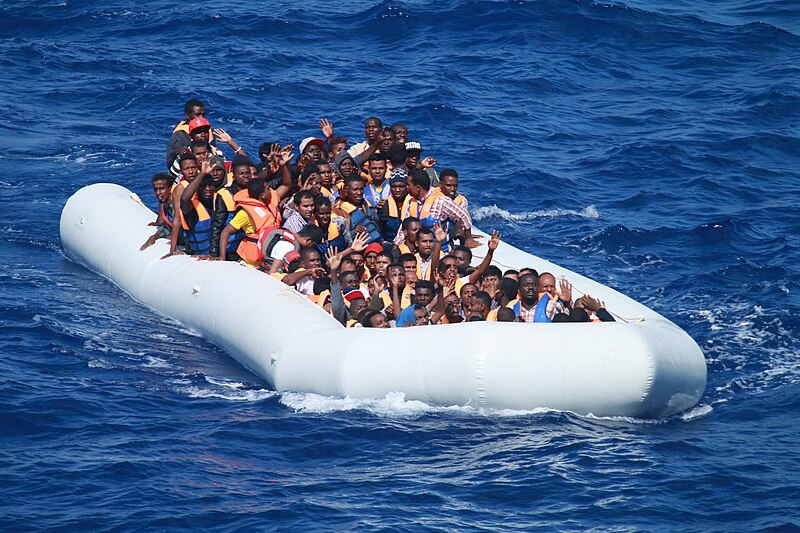
The United Kingdom and Germany have announced a landmark agreement to tackle organised immigration crime, with Germany committing to new legal measures that explicitly criminalize
activities within its borders facilitating migrant smuggling to the UK. This initiative aims to dismantle the operations of people smuggling networks and enhance border security for both nations.
The agreement was formalized on December 9 in London by UK Home Secretary Yvette Cooper and German Federal Minister of the Interior Nancy Faeser. This collaboration represents a significant step in the UK government's efforts to restore order to the asylum system and address the priorities of its citizens.
Germany’s legal reforms
Germany has pledged to amend its laws to strengthen law enforcement's ability to combat smuggling operations. These changes will include making it a criminal offense to facilitate migrant smuggling toward the UK and providing German prosecutors with enhanced tools to target the supply and storage of small boat equipment often used by smugglers. This coordinated effort ensures both countries can effectively counter the constantly evolving tactics employed by people smuggling gangs.
Key highlights of the agreement
This is the first agreement of its kind between the UK and Germany and follows discussions between UK Prime Minister Rishi Sunak and German Chancellor Olaf Scholz in August. It is a core component of the UK government’s broader strategy to strengthen international partnerships and secure its borders as part of a national renewal initiative.
Once Germany enacts its legal reforms, the UK and Germany expect a significant increase in prosecutions against those involved in migrant smuggling. The agreement also focuses on:
- Removing Smuggling Content Online: Both nations will work together to eliminate migrant smuggling content from social media platforms.
- Enhanced Focus via Europol: Strengthening efforts to disrupt smuggling routes and networks at their source.
- Regional Cooperation: Deepening collaboration with European and regional partners to address irregular migration upstream.
Home Secretary Yvette Cooper said:
“For too long organised criminal gangs have been exploiting vulnerable people, undermining border security in the UK and across Europe while putting thousands of lives at risk. We are clear that this cannot go on.
Germany is already a key partner in our efforts to crack down on migrant smuggling, but there is always more we can do together. Our new joint action plan will deliver a strengthened partnership with Germany, boosting our respective border security as we work to fix the foundations and ultimately saving lives”.
Nancy Faeser, German Federal Minister of the Interior said:
“We are now stepping up our joint action to fight the brutal activities of international smugglers. This is at the core of our joint action plan that we have agreed in London. I am very grateful to my British counterpart Yvette Cooper that we were able to reach this important agreement.
It will help us end the inhumane activities of criminal immigrant smuggling organisations. By cramming people into inflatable boats under threats and violence and sending them across the Channel, these organisations put human lives at risk.
Many of these crimes are planned in Germany. Together, we are now countering this unscrupulous business with human hardship with even more resolve. This includes maintaining a high investigative pressure, exchanging information between our security authorities as best as possible, and persistently investigating financial flows to identify the criminals operating behind the scenes”.
Addressing humanitarian concerns
In addition to securing borders, the partnership aims to reduce the tragic loss of life associated with dangerous migration routes. In 2023 alone, over 70 individuals, including children and infants, have perished attempting to cross the Channel in unseaworthy vessels.
Recent collaborative successes
The announcement highlights ongoing successes in joint operations against smuggling networks. On December 2, UK and German authorities arrested a suspected people smuggler in Leicester. Earlier this month, German authorities, supported by the UK's National Crime Agency (NCA), dismantled an Iraqi smuggling network, leading to 13 arrests and the seizure of boats, engines, and other equipment.
Future collaborations
The agreement also builds on the UK’s recent establishment of the Border Security Command, led by Martin Hewitt CBE QPM and backed by £150 million. This body will oversee the implementation of the joint action plan and coordinate efforts against smuggling networks.
The partnership will take center stage at the upcoming Calais Group meeting in London on December 10, co-chaired by the UK and Germany. Leaders from Belgium, France, the Netherlands, and EU agencies such as Europol and Frontex will convene to bolster efforts against smuggling gangs. Discussions will focus on financial aspects of smuggling, operational cooperation, and strategies to counteract the use of social media by criminal networks.
By strengthening their joint resolve, the UK and Germany aim to disrupt the business model of people smuggling, enhance border security, and bring those responsible for this dangerous trade to justice. Photo by Commander, U.S. Naval Forces Europe-Africa/U.S. 6th Fleet, Wikimedia commons.







































